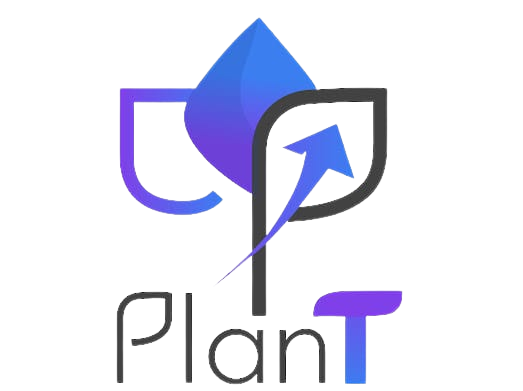Content
People overcome addictions when they realize that it is in their own best interest to do so. The goal of Motivational Interviewing is to get people to examine their habits in terms of their own values and goals. Likewise, you are most likely to change when you can see yourself and your own actions in this light. Wanting, seeking, and believing that you can change do not necessarily translate into immediate success.

Research has found that of the 20.3 million adults in the U.S. who have a substance use disorder, 37.9% also have another type of mental illness. The decision to change is one of the most important steps in overcoming an addiction. By acknowledging that a change is needed, it means that you recognize that there is a problem and have a desire to https://stylevanity.com/2023/07/top-5-questions-to-ask-yourself-when-choosing-sober-house.html address it. Another great way to cope with stress is through “decompression” methods such as meditation and journaling. It is often said that the brain is like a sponge that can only absorb as much liquid, or stressors, for that matter. Meditation and journaling is a great outlet for people going through personal struggles during recovery.
Life after addiction isn’t just possible. It’s the norm
It’s about keeping them from relapsing in the future and preparing them for life after treatment. From 1988 through 2001, I was continuously abstinent from drugs other than caffeine, including alcohol. Since then, I have used alcohol and cannabis responsibly, without difficulty. However, I have no illusions that I could moderate either cocaine or heroin use—so I continue to avoid these drugs and count myself among the recovering.
Is it easy to get rid of drug addiction?
Although there's no cure for drug addiction, treatment options can help you overcome an addiction and stay drug-free. Your treatment depends on the drug used and any related medical or mental health disorders you may have. Long-term follow-up is important to prevent relapse.
At some point—actually, at various points—in your life, you decide who you are, that is, what your identity is. With the advent of the Internet, many people find their support groups far and wide, as like-minded people or those with similar problems, no matter how rare, can be brought together over broad distances. It is very reassuring to conceive of a large group of supportive people out there, even if you never actually meet them. Finally, keep in mind your growing body of success at solving problems, a résumé that you will lengthen each time you apply this structured approach. Many of us are waiting for just the right moment to change, when the costs of the addiction are so great that change is unavoidable.
Keep drug triggers and cravings in check
So how can you help someone who’s recovering from substance abuse disorder? Here are seven tips to keep in mind as you support someone in their recovery journey. According to a national survey in 2019, 20.4 million Americans had experienced a substance use disorder over the past year. And data from the previous year showed that only about one tenth of individuals with an SUD received the treatment they needed.
This plan can include therapy, support groups, or professional help. This can be done through a medically assisted detox program, where medication is used to manage withdrawal symptoms. It is essential to detox under medical supervision to ensure that you are safe and comfortable. Stopping cocaine use can be dangerous, and it is essential to do it safely. The first step is to seek medical advice from a healthcare professional. They can monitor your progress and ensure that you are not at risk of any adverse health effects.
The Benefits of Rehab for Drug Addiction
This, however, presents some risks especially for those who have severe substance abuse problems. Developing an addiction to drugs isn’t a character flaw or a sign of weakness, and it takes more than willpower to overcome the problem. Abusing illegal or certain prescription drugs can create changes in the brain, causing powerful cravings and a compulsion to use that makes sobriety seem like an impossible goal. But recovery is never out of reach, no matter how hopeless your situation seems or how many times you’ve tried and failed before. As such, it has armed you with tools to fight and beat addiction successfully. Indeed, your commitment is the essential ingredient to activating any and all of these tools—values, motivation, rewards, resources, support, a mature identity, and higher goals.
Fortunately, most cases of alcohol use disorder can be treated with outpatient programs, so you don’t necessarily need to pack your bags or head off to rehab for a month or more. An IOP (intensive outpatient program) or a PHP (partial hospitalization program) might provide all the structure you need to kickstart your recovery. Alternatively, you may have severe alcohol use disorder but convince yourself you could easily quit drinking with the help of 12-step groups like AA. Sooner or later, though, most people abusing substances will decide enough is enough.
The first step to overcoming drug abuse and addiction
The same communication principles apply to marital communications, those between parents and children, and those with other relatives or co-workers. An inability to allow genuine feedback from one’s partner is a trait of relationships with problems; often it accompanies substance or spousal abuse. Learning effective communication techniques (including between partners in a couple) is a critical element in resolving addiction. If you are well organized, practical, or gifted at household repairs, then similar problem-solving abilities will work in other areas of your life.
- Whether you have a problem with illegal or prescription drugs, addiction treatment should be customized to your unique situation.
- Also, talking about craving often helps to discharge and relieve the feeling and will help restore honesty in your relationship.
- Other patients in drug addiction rehab can help you by giving you peer support with your recovery.
- You have access to individual and group therapy, medical assistance, and a full program that helps you learn to manage your triggers and rebuild a life while you recover.
- Different quick stress relief strategies work better for some people than others.
